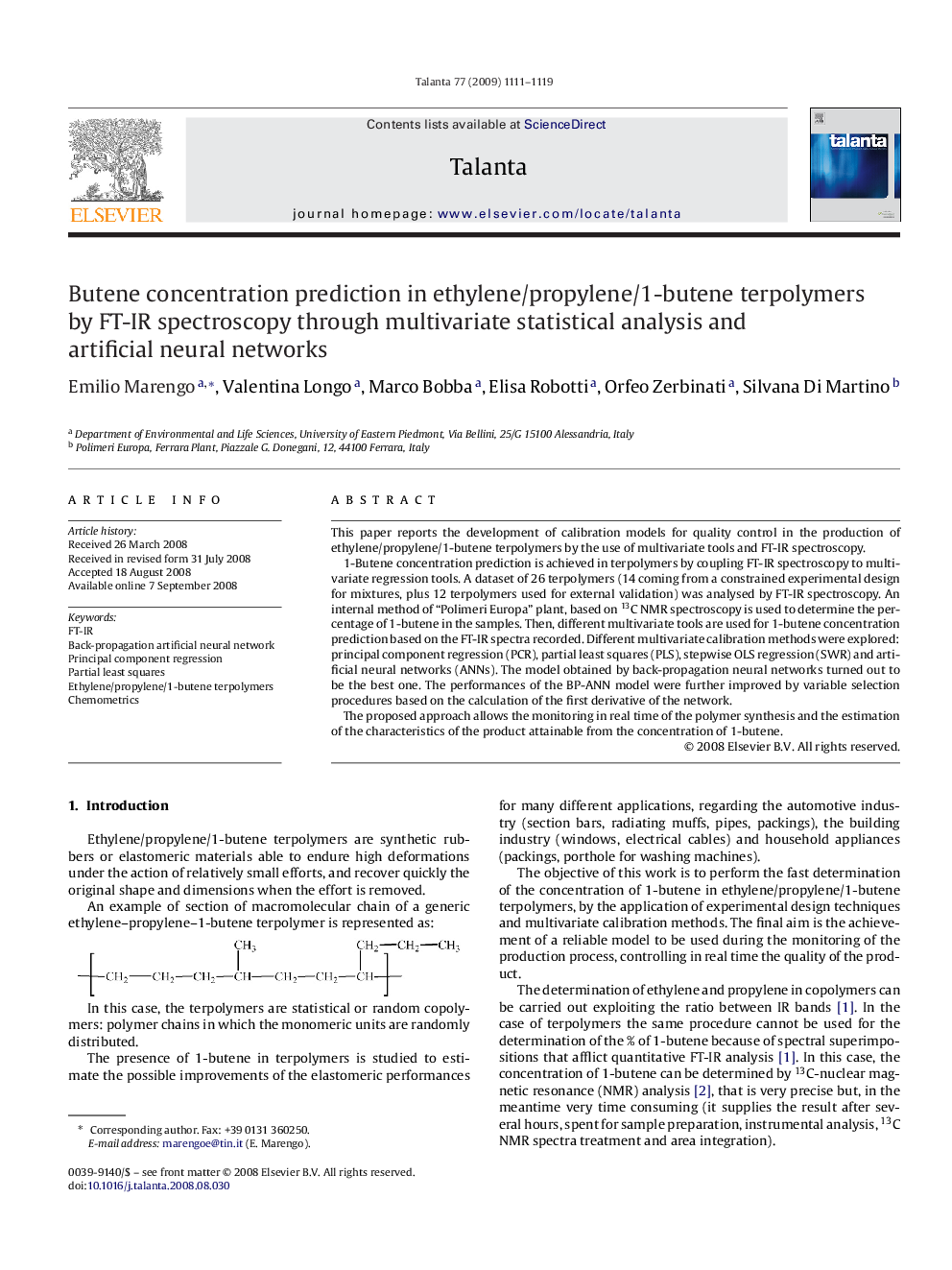| Article ID | Journal | Published Year | Pages | File Type |
|---|---|---|---|---|
| 1247045 | Talanta | 2009 | 9 Pages |
This paper reports the development of calibration models for quality control in the production of ethylene/propylene/1-butene terpolymers by the use of multivariate tools and FT-IR spectroscopy.1-Butene concentration prediction is achieved in terpolymers by coupling FT-IR spectroscopy to multivariate regression tools. A dataset of 26 terpolymers (14 coming from a constrained experimental design for mixtures, plus 12 terpolymers used for external validation) was analysed by FT-IR spectroscopy. An internal method of “Polimeri Europa” plant, based on 13C NMR spectroscopy is used to determine the percentage of 1-butene in the samples. Then, different multivariate tools are used for 1-butene concentration prediction based on the FT-IR spectra recorded. Different multivariate calibration methods were explored: principal component regression (PCR), partial least squares (PLS), stepwise OLS regression (SWR) and artificial neural networks (ANNs). The model obtained by back-propagation neural networks turned out to be the best one. The performances of the BP-ANN model were further improved by variable selection procedures based on the calculation of the first derivative of the network.The proposed approach allows the monitoring in real time of the polymer synthesis and the estimation of the characteristics of the product attainable from the concentration of 1-butene.
